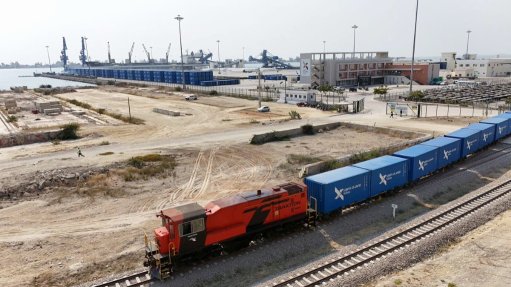Centralised grid, with diversified generation, is best electricity supply option for South Africa
Despite well-known issues, South Africa has a much higher rate of electrification than most other African countries. In Cape Town, 98% of the population has access to electricity, and the remaining 2% will get such access. So reported City of Cape Town Energy Efficiency & Renewables Facilitation manager Mary Haw, in a panel discussion at the Solar & Storage Live Cape Town 2025 conference, being held at the Cape Town International Convention Centre.
Thus, in South Africa, and in Cape Town, a centralised grid was a better option than the microgrids that were being developed in many other African countries. Instead of microgrids, in South Africa it was about integrated grid-tied systems.
“For us, distributed generation means diversity of supply,” she explained. “The rapid uptake of private generation capacity has transformed the energy picture in the past two years. There are scenarios [in South Africa] where microgrids work, but they’re grid-tied microgrids. For example, a hospital complex, that must always keep going.”
“Microgrids are great in areas without grids,” she acknowledged. “But they are still more expensive.” Integrating microgrids into grids reduced the cost of electricity and increased resiliency both locally and nationally.
She also noted that Cape Town (among others) had to avoid the threat of a “utility death spiral”, as more and more well-off consumers went solar and dropped off the grid. Nevertheless, while one could “island” oneself from the grid, you would still have to pay electricity rates, even if you were not using any electricity from the grid, she pointed out. This was because municipalities were required, by the Constitution, to provide basic services to everyone. Rates paid by those with the necessary income helped fund the supply of a minimum amount of electricity to the poor.
However, there were also a lot of carrots, for staying on the grid, she highlighted. One example was Cape Town’s policy of buying electricity from companies that were using solar to generate power themselves. The city was moving away from a one-way generator-to-user model for electricity. Cape Town also had industrial development zones which enjoyed special electricity tariffs, designed to encourage large industrial consumers to locate themselves there.
Ensuring affordable electricity supply to poor city residents was a key element in Cape Town’s energy strategy. “It is a very complex challenge,” she cautioned. “Don’t assume you know what energy technology they want.” It was necessary to work with, and understand, each poor community and their specific needs and desires.
Article Enquiry
Email Article
Save Article
Feedback
To advertise email advertising@creamermedia.co.za or click here
Comments
Announcements
What's On
Subscribe to improve your user experience...
Option 1 (equivalent of R125 a month):
Receive a weekly copy of Creamer Media's Engineering News & Mining Weekly magazine
(print copy for those in South Africa and e-magazine for those outside of South Africa)
Receive daily email newsletters
Access to full search results
Access archive of magazine back copies
Access to Projects in Progress
Access to ONE Research Report of your choice in PDF format
Option 2 (equivalent of R375 a month):
All benefits from Option 1
PLUS
Access to Creamer Media's Research Channel Africa for ALL Research Reports, in PDF format, on various industrial and mining sectors
including Electricity; Water; Energy Transition; Hydrogen; Roads, Rail and Ports; Coal; Gold; Platinum; Battery Metals; etc.
Already a subscriber?
Forgotten your password?
Receive weekly copy of Creamer Media's Engineering News & Mining Weekly magazine (print copy for those in South Africa and e-magazine for those outside of South Africa)
➕
Recieve daily email newsletters
➕
Access to full search results
➕
Access archive of magazine back copies
➕
Access to Projects in Progress
➕
Access to ONE Research Report of your choice in PDF format
RESEARCH CHANNEL AFRICA
R4500 (equivalent of R375 a month)
SUBSCRIBEAll benefits from Option 1
➕
Access to Creamer Media's Research Channel Africa for ALL Research Reports on various industrial and mining sectors, in PDF format, including on:
Electricity
➕
Water
➕
Energy Transition
➕
Hydrogen
➕
Roads, Rail and Ports
➕
Coal
➕
Gold
➕
Platinum
➕
Battery Metals
➕
etc.
Receive all benefits from Option 1 or Option 2 delivered to numerous people at your company
➕
Multiple User names and Passwords for simultaneous log-ins
➕
Intranet integration access to all in your organisation


















